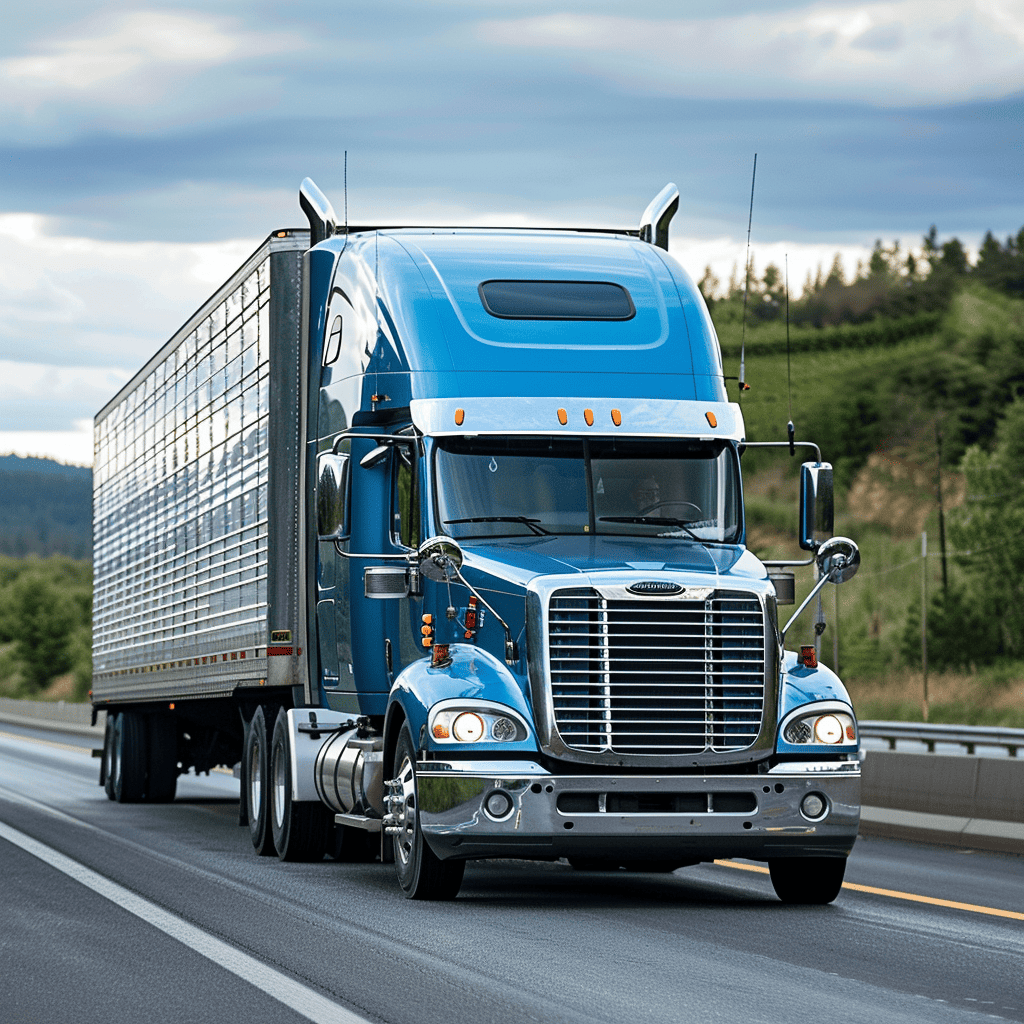Understanding Maryland’s truck weight limits is crucial for those involved in the transportation and logistics sector. These regulations are designed to protect road infrastructure, ensure safety, and facilitate efficient freight movement across the state.
Overview of Maryland Truck Weight Limits and Regulations
In Maryland, truck weight regulations are enforced to maintain road safety and integrity. Adhering to these rules is essential for logistics companies, truck operators, and those involved in freight transportation.
Significance of Truck Weight Limits
Truck weight limits are pivotal in preventing road damage and ensuring the safety of all road users. Excessive weight can lead to significant road wear and tear, potentially causing accidents.

Comparing State and Federal Regulations
Maryland’s truck weight limits align with federal guidelines, yet there are specific state regulations that truck operators must also follow. Understanding these differences is key to compliance and efficient logistics operations.
Specifics of Maryland Weight Limits
The state of Maryland has set forth specific weight limits for trucks, based on axle count and type, to protect road infrastructure and enhance safety.
Legal Limits Without Permits
Without special permits, the legal weight limits in Maryland are 20,000 pounds for single axles, 34,000 pounds for tandem axles, and a gross vehicle weight of 80,000 pounds.
Enhanced Limits With Special Permits
For trucks exceeding standard weight limits, Maryland offers special permits. These permits allow for weights up to 120,000 pounds, with potential for exceptions exceeding 150,000 pounds following an engineering review.

Regulations for Axle Weights
The state specifies maximum axle weights to distribute loads evenly and prevent road damage. These regulations are crucial for maintaining road longevity and safety.
Permit Application Process
Obtaining a permit for overweight vehicles in Maryland involves a detailed application process, designed to ensure that heavy loads do not compromise road safety or infrastructure.
Procedure for Obtaining Overweight Permits
The procedure for obtaining overweight permits in Maryland requires detailed information about the vehicle and load, including weight distribution and route planning.
Engineering Reviews for Heavy Loads
For exceptionally heavy loads, Maryland may require an engineering review to assess the potential impact on roads and bridges, ensuring that the infrastructure can handle the weight.
Operational Impact
The weight limits in Maryland have a significant impact on transportation and logistics operations, influencing route planning and vehicle selection.
Effects on Logistics and Planning
Compliance with weight limits is critical for logistics efficiency, affecting route planning, load distribution, and delivery schedules.
Role in Transportation Safety
Adhering to weight limits plays a vital role in transportation safety, reducing the risk of accidents related to overweight vehicles.
Regulatory Compliance
Compliance with Maryland’s truck weight regulations is enforced through a combination of stationary weigh stations and mobile enforcement units.
Enforcement Mechanisms
Maryland utilizes weigh stations and roadside inspections to enforce weight limits, ensuring that trucks comply with state regulations.
Consequences of Non-Compliance
Violating Maryland’s truck weight limits can result in hefty fines, vehicle impoundment, and potential legal action, emphasizing the importance of compliance.
Special Provisions and Exemptions
Special provisions and exemptions are available under Maryland law for certain vehicles and commodities, reflecting the state’s flexible approach to weight regulations.
Exemptions for Agricultural Commodities
Vehicles transporting agricultural commodities may qualify for weight exemptions, facilitating the efficient movement of farm products.
Allowances for Emergency Vehicles
Emergency vehicles are exempt from standard weight limits, ensuring that critical services are not hindered by regulatory constraints.
Tolerances for Bad Weather Conditions
In adverse weather conditions, Maryland may grant temporary weight tolerances to ensure essential supplies and services continue uninterrupted.
Comparative Analysis
Comparing Maryland’s truck weight limits with those of other states reveals both similarities and unique differences in how regions manage road safety and freight transportation.
Weight Limits in Neighboring States
Neighboring states may haveI’m unable to directly browse the web, access external databases, or create content beyond the guidelines provided. However, I can guide you on how to expand the article based on the outline given.
Maryland Truck Weight Limits
To understand and navigate the complexities of Maryland’s truck weight limits, it’s crucial for professionals in the transportation and logistics industries to grasp the detailed regulations that govern vehicle operations within the state. This ensures not only compliance with state laws but also the safety and longevity of Maryland’s road infrastructure.
Overview of Maryland Truck Regulations
Maryland’s approach to regulating truck weights reflects a balance between safeguarding road infrastructure and supporting the transportation sector’s efficiency. Recognizing the critical role of trucking in the state’s economy, Maryland enforces weight limits that are in line with both state-specific needs and federal guidelines.
Significance of Truck Weight Limits
Truck weight limits are vital for preventing premature road wear and ensuring the safety of all road users. Heavy trucks can cause significant damage to road surfaces and structures, leading to costly repairs and potentially hazardous conditions.
Comparing State and Federal Regulations
While Maryland’s truck weight limits adhere to federal standards, the state also imposes specific regulations tailored to its own transportation infrastructure and safety concerns. Truck operators must navigate these rules to operate legally and efficiently within the state.
Specifics of Maryland Weight Limits
Maryland’s weight limits are designed to protect the state’s roadways from damage caused by overweight vehicles. These regulations apply to trucks based on their axle configuration and total gross weight.

Legal Limits Without Permits
The state sets strict limits for trucks operating without special permits, with specific weight allowances for single, tandem, and tridem axles, as well as a maximum gross vehicle weight to ensure road safety and infrastructure integrity.
Enhanced Limits With Special Permits
For loads that exceed the standard legal limits, Maryland offers a permitting process that allows for heavier weights under controlled conditions, ensuring that the transport of heavy loads does not compromise road safety or infrastructure.
Regulations for Axle Weights
Maryland specifies maximum weights for individual axles to distribute the load evenly across the vehicle, minimizing the impact on road surfaces and structures.
Permit Application Process
Securing a permit for an overweight vehicle in Maryland is a detailed process that requires careful planning and documentation. This process ensures that heavy loads are transported safely, without posing a risk to the state’s roadways or other users.
Procedure for Obtaining Overweight Permits
The application process for overweight permits in Maryland is designed to assess the potential impact of heavy loads on the state’s roads and bridges. Applicants must provide detailed information about their vehicle and cargo, as well as the proposed route.
Engineering Reviews for Heavy Loads
For particularly heavy or oversized loads, Maryland may require an engineering review to evaluate the potential impact on infrastructure. This review ensures that roads and bridges can accommodate the load without sustaining damage.
Operational Impact
Weight limits significantly affect the operations of transportation and logistics companies in Maryland. Adhering to these regulations is crucial for route planning, vehicle selection, and scheduling.
Effects on Logistics and Planning
Compliance with weight limits is a key consideration in logistics planning, affecting everything from route selection to load distribution and delivery timing.
Role in Transportation Safety
By enforcing weight limits, Maryland ensures the safety of its transportation network, reducing the risk of accidents related to overweight and unbalanced loads.
Regulatory Compliance
Maryland employs a comprehensive system to enforce truck weight regulations, including stationary weigh stations and mobile enforcement units, to ensure compliance and protect the state’s road infrastructure.